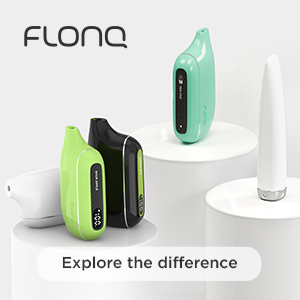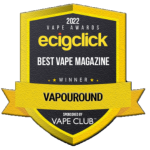January 1, CBD e-liquids will be regulated under Germany’s Tobacco Products Act.
Previously the preserve of nicotine e-liquids, the classification will require CBD e-liquid manufacturers to provide German authorities with toxicological data and information on production processes, label their products and adhere to a host of strict advertising restrictions.
Kai-Friedrich Niermann is a lawyer specialising in cannabis law and legal adviser to the European Industrial Hemp Association (EIHA). He has written several legal opinions on nicotine-free CBD e-liquids.
Niermann explains what the new classification will mean for CBD e-liquids:
“Every product, which was legally in the market until the end of the year, can stay on the market for another six months.
“But for your product to remain on the market after that, you have to notify it within the system as well as a tobacco notification in the EU. And you have to do an emissions test to show what’s in there.
“There are also more labelling requirements, so you have to have a leaflet inside the box with all the information on the product.”
These new testing and labelling requirements are likely to add additional €2000-4000 to the cost of bringing a CBD e-liquid to market, Neirmann says. While this is a drop in the ocean compared to the cost of the Novel Foods application required for CBD edibles, the additional cost could see CBD e-liquids pushed to the sidelines.
“One of my clients is the founder and director of the Hall of Vape event in Germany. He says that CBD e-liquids are a niche product.
“They don’t play any role during his events and are a small part of the German market.”
Kai-Friedrich Niermann
Despite its niche status, vaping is recognised as one of the fastest and most effective ways of consuming CBD. Users often consume CBD this way to respond to issues as they arise, rather than taking an edible which might last longer but will take more time to kick in.
Along with the testing and labelling requirements, CBD companies will no longer be able to advertise their e-liquids online, on outdoor advertising or on exterior retailer walls, though the outdoor restrictions will not take effect until January 2024.
The advertising restrictions will place yet another barrier on CBD companies that are very limited in how they can promote their products.
Retailers and manufacturers are prohibited from making medical claims about CBD as the compound is, at least for now, classified as a dietary supplement rather than a medicine.
If Germany’s enforcement of the EU’s Novel Foods Directive is any indicator, CBD e-liquid companies will have no choice but to get in line.
Niermann says:
“They are enforcing the novel food directive massively now, with criminal proceedings with police raiding shops and confiscating goods.
“Just last week, I got three calls from shop owners who were facing preliminary proceedings.”
Header Image by FelixMittermeier from Pixabay








